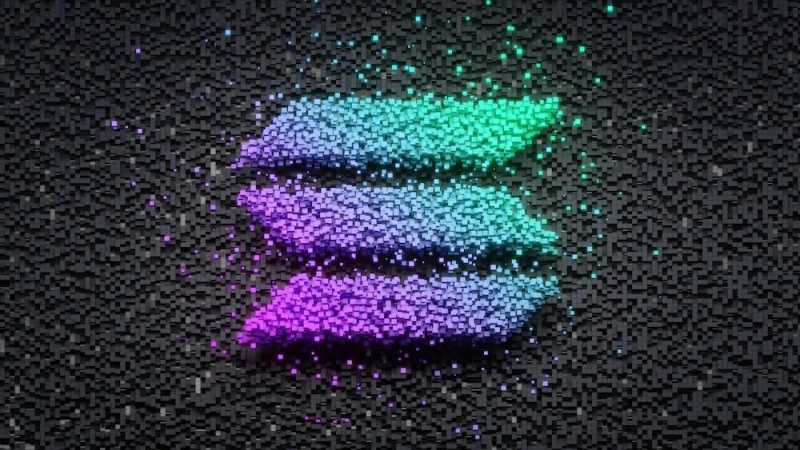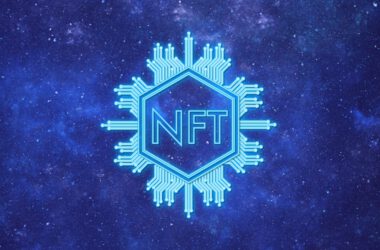Solana is one of the most influential networks that burst on the crypto stage in the past few years. Quickly, Solana took a large share of the NFT space and started attracting play to earn game projects.
How Solana Works
Solana built its blockchain from scratch, introducing a new block production structure for greater speed and lower transaction prices. To achieve this, 1,180 validator nodes, some organized into Cluster structures, verify and transmit SOL transactions.
Because of this structure, Solana is much cheaper and easier to use, with lower waiting time and the potential to verify 50,000 transactions per second. Unlike mined blockchains, a Solana block takes under a second to be filled with valid transactions. Then, each two days, the Solana network sets a new epoch and rewards its validators. This allows the record to be preserved forever on the blockchain.
The scalability potential is what makes Solana one of the choices of new play to earn developers.
What is the SOL Token
SOL token is the native digital asset of the Solana network. It has multiple functions, serving as:
- Reward for validators;
- Payment for transactions;
- Payment for smart contracts;
- To acquire NFT items on the Solana network.
SOL has a total supply of 508,992,255 tokens, of which around 303M are in circulation, with the rest locked in various forms of staking or in validation nodes.
SOL has a dynamic price history, launching with prices below $1 in May 2020. After catching the attention of the trading community, SOL picked up the pace and is now a three-digit price blue chip asset. SOL is solidly among the top 5 largest assets in terms of market capitalization.
Who is Behind Solana
Solana was co-founded by Anatoly Yakovenko and Raj Gokal. The Solana Labs organization is a team of more than 60 professionals in development, marketing, design and other roles for a full experience of a decentralized network with metaverse capabilities.
The Solana project launched as a token sale in March 2020, raising the equivalent of $25.6M. With an initial token price of $0.22 for early adopters, SOL has become one of the highest-returning ICO projects.
Solana has also raised venture funding from private investors, raising $20M in Series A funding in 2019 from a wide group of investors.
What Projects are Built with Solana
Solana Labs claims more than 400 projects have been built on its blockchain. As of November 2021, various Solana protocols hold in about $12.9B in various stakes and collaterals, of which play to earn and gamefi has a growing share.
Games are built directly on Solana, or through one of its top projects, Raydium. Raydium is the most dominant token-based platform that locks in about 13% of all value in the ecosystem. Raydium is also the hub for newly created and curated Solana games. The list of play to earn games on Solana will be extended with time, but already sparked communities around games like Owliverse, Floofers and CryoWar. Stay tuned for more updates on play to earn games on Solana as more hackathons and incubators give rise to a new collection.
How to Get and Store SOL
SOL is traded on most major exchanges and is available for US-based buyers through Coinbase. For international traders, Binance is the most liquid option. The Kraken exchange also carries SOL.
For beginner users, it is best to use swap services or brokerages, to avoid a confusing trading interface.
Holding SOL in a Wallet
There are two major types of wallets for easy access to SOL and usage for NFTs and play to earn. One type is the app-based wallet. Those include Exodus, with limited swap and trading capabilities, as well as Trust Wallet.
Trust Wallet has more opportunities to move SOL, but it is suitable to acquire the initial coins for play to earn.
The other type is a web-based wallet that has the advantage of connecting to play to earn environments. Phantom Wallet is suitable as a browser extension wallet, and contains an NFT section, as well as a connection to a hardware wallet. Phantom Wallet is one of the most widely used SOL wallets due to its native distributed app browser.
Can SOL Move to Other Blockchains
For now, SOL is mostly restricted to the Solana blockchain. Solana bridges are few and projects prefer to rebuild their versions from Ethereum to Solana.
The Solana project is thus one of the important stand-alone hubs for the play to earn trend, and a direct tool to avoid high Ethereum fees while also accessing significant value locked in new games.










